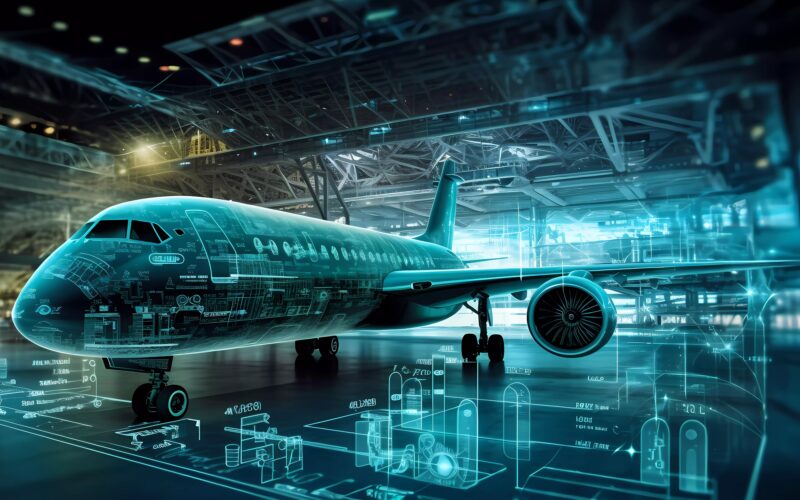Artificial Intelligence (AI) is revolutionizing industries around the world, and aviation is no exception. For aspiring pilots, AI represents a fundamental shift in how they learn, practice, and prepare for their careers in the skies. From customized training programs to sophisticated simulations, AI is making flight training more efficient, effective, and accessible. This article will delve into the ways AI is reshaping flight training and what this means for the future of aviation education.
The Evolution of Flight Training
Traditionally, flight training has been a demanding and lengthy process, often requiring countless hours in both the cockpit and flight simulators. However, the integration of AI is significantly accelerating the learning curve, enhancing training programs, and improving overall safety and performance. Let’s explore how AI is driving these advancements.
Customized Training Programs
One of the most substantial impacts of AI in flight training is its ability to provide personalized learning experiences. AI-powered platforms can analyze a student’s performance in real time and adjust training programs to meet their individual needs. By pinpointing specific strengths and weaknesses, AI ensures that each student receives tailored instruction that targets areas needing improvement. This personalized approach not only increases learning efficiency but also helps students build confidence and competence more quickly.
Advanced Flight Simulations
Flight simulators have long been essential to aviation training, but AI is enhancing them in remarkable ways. Modern AI-driven simulators offer an immersive and realistic training environment that can replicate a broad range of flight scenarios—from routine operations to intricate emergencies. This capability provides students with valuable hands-on experience in a safe, controlled setting. The ability to simulate various conditions and unexpected situations prepares students for real-world flying, enhancing their problem-solving skills and situational awareness.
Data-Driven Performance Insights
AI’s ability to process and analyze vast amounts of data is transforming the landscape of flight training. By examining data gathered from simulations and actual flight practice, AI systems can deliver comprehensive feedback on a student’s performance. This data-driven methodology assists instructors and students in identifying patterns, recognizing areas for improvement, and monitoring progress over time. The insights derived from this analysis are essential for refining skills and making informed decisions during training.
Adaptive Learning Systems
AI-powered adaptive learning systems are changing how training materials are delivered. These systems can modify their content in real-time based on the student’s progress, ensuring that instruction aligns with the learner’s current understanding. For instance, if a student struggles with a specific maneuver, the system can offer additional practice opportunities and resources to facilitate mastery. This adaptive approach not only makes training more flexible but also ensures that it is responsive to individual needs.
Real-Time Performance Monitoring
Real-time performance monitoring is another area where AI is making a significant impact. AI tools can continuously track a student’s performance during simulations and actual flights, offering immediate feedback and improvement recommendations. This instant response allows students to correct mistakes as they occur, reinforcing learning and leading to a more effective training experience. Continuous performance monitoring ensures that students are constantly aware of their progress and can make adjustments as needed.
Increasing Accessibility
One of the most exciting aspects of AI in flight training is its potential to enhance accessibility. AI-driven virtual training modules and online resources allow students from various geographical locations to access high-quality training without needing to be physically present at a flight school. This increased accessibility opens doors for aspiring pilots who may have previously faced barriers to traditional training programs due to location or financial constraints. Students can now access comprehensive training resources from the comfort of their homes.
Real-World Success Stories
The advantages of AI in flight training are already being demonstrated across numerous flight schools and training programs. Success stories include improved student performance, expedited certification processes, and enhanced overall preparedness for real-world flying. As AI technology continues to evolve, its applications in aviation education are likely to expand further, offering new tools and methods to enhance training and maintain the highest standards of safety and competence.
The Future of AI in Aviation Training
As AI continues to advance, it will play an increasingly significant role in aviation training. The integration of AI into flight training programs not only streamlines the learning process but also improves the quality of training. Looking forward, we can anticipate more innovative uses of AI in aviation, including more sophisticated simulations, improved data analytics, and even AI-driven assessments that can provide deeper insights into a student’s capabilities.
Conclusion
Artificial Intelligence is undoubtedly shaping the future of flight training, making it more personalized, efficient, and accessible. By harnessing the capabilities of AI, flight schools can provide enriched learning experiences, allowing students to achieve their goals more quickly and with greater confidence. As we look to the future, the integration of AI into aviation education promises to unlock new possibilities and elevate the standards of pilot training.
Join the Discussion
What are your thoughts on the role of AI in flight training? How do you envision these advancements impacting the future of aviation? Share your opinions and join the conversation!

